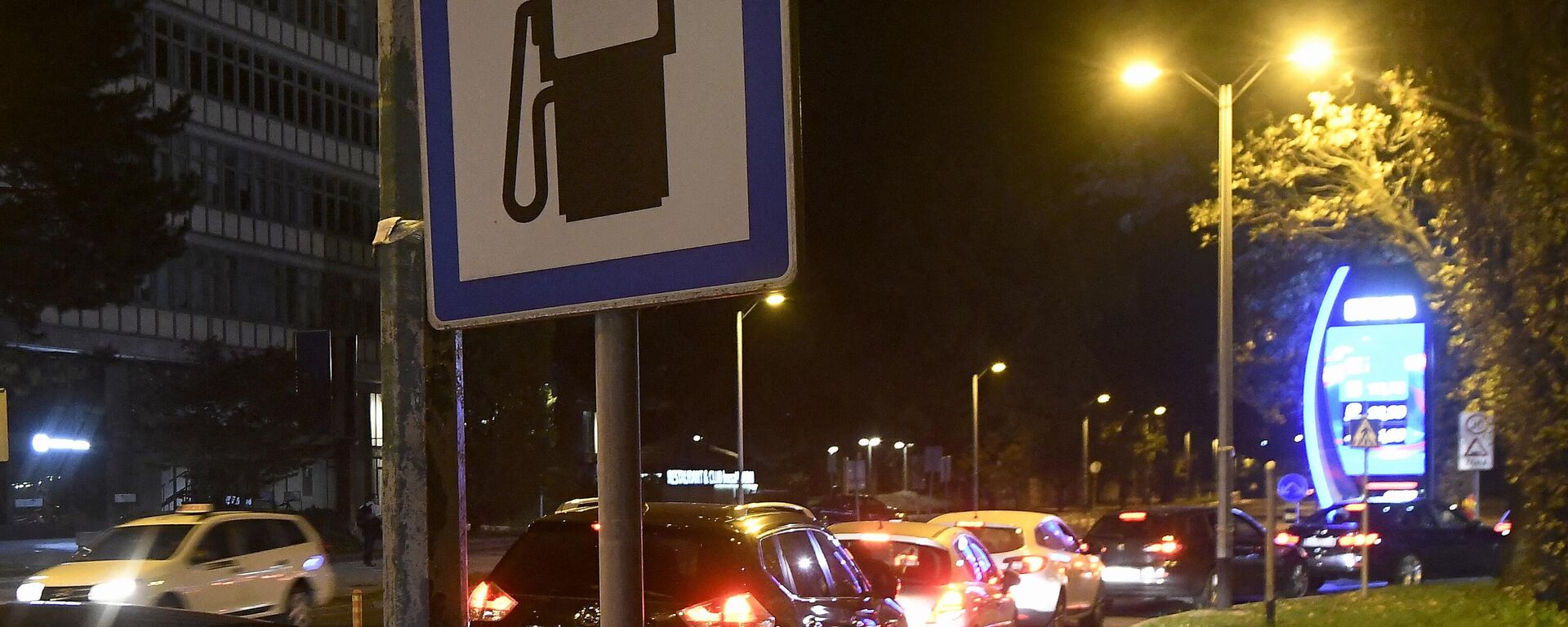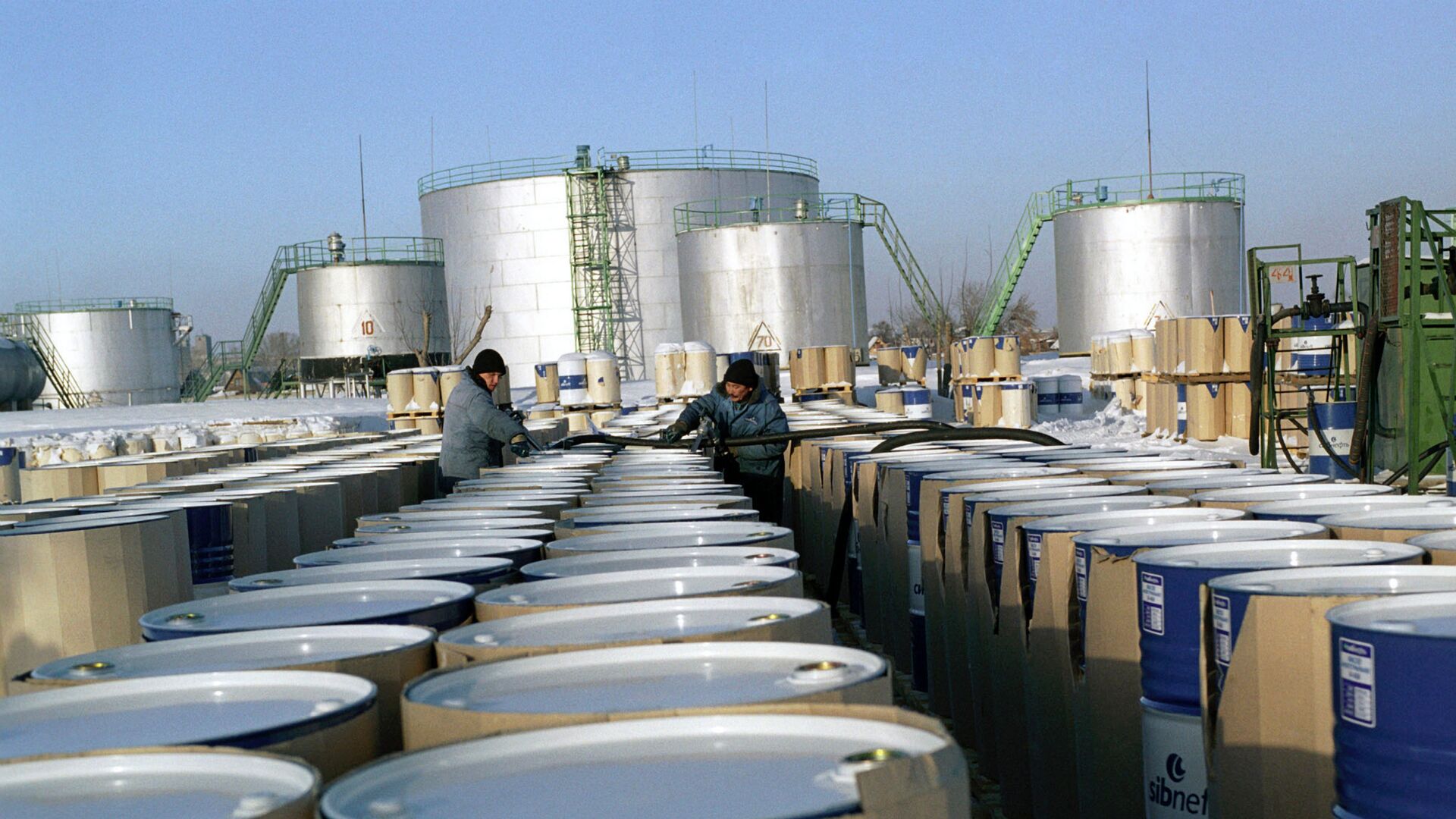https://sputnikglobe.com/20230111/wests-oil-price-cap-to-cut-into-russian-revenues-but-not-in-major-way---expert-1106233476.html
West's Oil Price Cap to Cut Into Russian Revenues, But Not in Major Way - Expert
West's Oil Price Cap to Cut Into Russian Revenues, But Not in Major Way - Expert
Sputnik International
MOSCOW (Sputnik) - A price cap on Russian oil, imposed by the West in response to Moscow's military operation in Ukraine, will likely reduce the country's oil... 11.01.2023, Sputnik International
2023-01-11T20:05+0000
2023-01-11T20:05+0000
2023-01-11T20:00+0000
russia
oil prices
price cap
revenue
https://cdn1.img.sputnikglobe.com/img/107939/86/1079398662_0:26:2909:1662_1920x0_80_0_0_f7ac120554b65f4551d47486f3cfd816.jpg
The World Bank suggested on Tuesday that the drop in Russian exports associated with the G7 oil price cap will be smaller than initially anticipated. "Given an effective price cap ban and reduction of Russian oil export, Russian revenues will most likely be reduced, albeit not in a fundamental way. Some oil may be redirected to Asia and other parts of the world, and mitigate the volume effect. Exemptions from the ban may also be given," Austvik, a professor of political economy and petroleum economics at the Inland Norway University of Applied Sciences, said. At the same time, the expert warned the cap could have negative repercussions for Russia in the long run. Western countries have been seeking ways to limit Russia's income from oil and gas exports, as well as their dependence on Russian fuel since the country launched a military operation in Ukraine on February 24. On December 5, the European Union placed a price cap of $60 per barrel on Russian crude oil, joined by the G7 nations and Australia. In late December, Russian President Vladimir Putin signed a decree banning supplies of Russian oil and petroleum products if contracts directly or indirectly provide for a price cap. According to Kremlin spokesman Dmitry Peskov, the Russian president did not consult with OPEC+ allies before signing off on the response measures.
https://sputnikglobe.com/20230111/western-powers-preparing-new-price-caps-on-russian-refined-petroleum-exports-reports-say-1106230359.html
Sputnik International
feedback@sputniknews.com
+74956456601
MIA „Rossiya Segodnya“
2023
Sputnik International
feedback@sputniknews.com
+74956456601
MIA „Rossiya Segodnya“
News
en_EN
Sputnik International
feedback@sputniknews.com
+74956456601
MIA „Rossiya Segodnya“
Sputnik International
feedback@sputniknews.com
+74956456601
MIA „Rossiya Segodnya“
oil prices, price cap, revenue
oil prices, price cap, revenue
West's Oil Price Cap to Cut Into Russian Revenues, But Not in Major Way - Expert
MOSCOW (Sputnik) - A price cap on Russian oil, imposed by the West in response to Moscow's military operation in Ukraine, will likely reduce the country's oil revenues, though not in a major way, while potentially undermining its energy position in the long-term, energy expert Ole Gunnar Austvik told Sputnik.
The World Bank suggested on Tuesday that the drop in Russian exports associated with the G7 oil price cap will be smaller than initially anticipated.
"Given an effective price cap ban and reduction of Russian oil export, Russian revenues will most likely be reduced, albeit not in a fundamental way. Some oil may be redirected to Asia and other parts of the world, and mitigate the volume effect. Exemptions from the ban may also be given," Austvik, a professor of political economy and petroleum economics at the Inland Norway University of Applied Sciences, said.
At the same time, the expert warned the cap could have negative repercussions for Russia in the long run.
"Taken together with sanctions on technology and finance, a ban may contribute to hamper investment in new Russian projects and weaken the country's long-term energy position, even if more self-sufficiency in relevant areas supporting the industry can mitigate the challenge over time," Austvik added.
Western countries have been seeking ways to limit Russia's income from oil and gas exports, as well as their dependence on Russian fuel since the country launched a military operation in Ukraine on February 24. On December 5, the European Union placed a price cap of $60 per barrel on Russian crude oil, joined by the G7 nations and Australia.

11 January 2023, 16:54 GMT
In late December, Russian President Vladimir Putin signed a decree banning supplies of Russian oil and petroleum products if contracts directly or indirectly provide for a price cap. According to Kremlin spokesman Dmitry Peskov, the Russian president did not consult with OPEC+ allies before signing off on the response measures.



